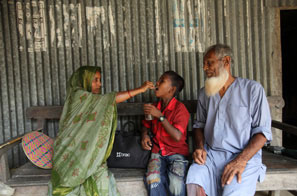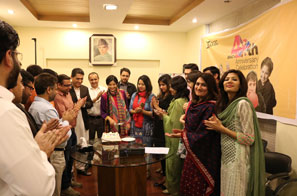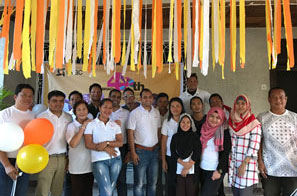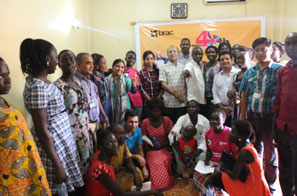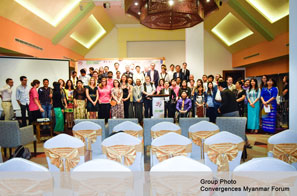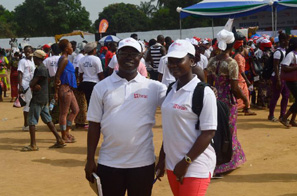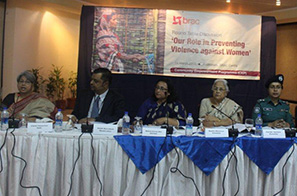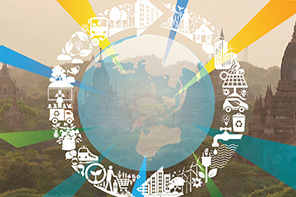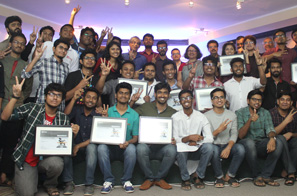
English (965)
Children categories
LEAD project improves livehoods
The four year project, which became to an end this month, has brought about tremendous impact to the poor farmers in 15 regions in the country.
Speaking at a dissemination workshop on LEAD project organised by BRAC Maendeleo in Dar es Salaam at the weekend the Minister of Agriculture and Fisheries Charles Tizeba praised the organisation for the concerted efforts to improve the livelihoods of Tanzanians.
He called upon various stakeholders to come up with projects to end poverty in various parts of the country and areas which no change yet had been realised.
According to him, boosting those poor farmers in remote rural areas was a recommendable job which other stakeholders should emulate.
“About 18 million Tanzanians are living in abject poverty so efforts are still needed to ensure that we remove them from the poverty line... and agriculture has been seen as a major way to go,” he said.
Tizeba called upon research organisations to invest on new maize seeds that were resistant drought and other climate change impacts.
For his part, BRAC Maendeleo country representative Rakibul Bari Khan said that the LEAD project had for the past four years worked to improve farming skills, facilitate linkages to farm inputs and markets as well as facilitating finance farmers through soft loans and grants.
He said that LEAD project implemented by the organisation was meant to facilitate agribusiness investment in the poultry and maize value chains in the country.
He said through the project, farmers could access both grants and loans and businesses could also apply for capital injections whereby it had disbursed at least USD 8.4 million as loans.
“The LEAD project, now in its fourth year of operation, has successfully facilitated to the formation of a total of 8021 producer groups, 89 agro-dealers have also trained.
The project has also addressed the constraints of high post-harvest losses in maize through establishment of purdue improved crops storage (PICS) bags and trained farmers with improved processing techniques,” he said.
Child TB patients detection on the rise

The year 2016 saw a rise in the number of tuberculosis patient detection, child TB patients in particular. Use of upgraded technologies and machines enables health professionals to diagnose more patients with the infection, which has caused the rise in the number. In 2015, a total of 7,984 children were diagnosed with TB, while the number rose to 9,291 in 2016. In percentage account, child TB patient detection in 2016 was 4.3 per cent. In 2015, it was 4 per cent. In 2016 again, the total number of patients including children detected with TB stood at 2,23, 922. Of them 9,700 were multi-drug-resistant (MDR) TB patients.
Experts revealed these at a press conference today on Thursday, organised at the National Press Club on the occasion of World Tuberculosis Day 2017. Every year 24 March is observed as the World TB Day. National TB Control Programme (NTP) under the Directorate General of Health Services (DGHS) of the Ministry of Health and Family Welfare, BRAC and other partner organisations jointly arranged the press conference. The event was organised to share the successes and experiences from the TB control activities as well as the future planning in this regard. This year, the WHO released slogan for the day is 'Unite efforts to leave no one behind'.
NTP line director Dr Rouseli Haq was present as the chief guest at the press conference. Key presentation was delivered by DR-TB chief executive Dr Nazis Arefin Saki.
Deputy World Health Organisation representative Dr Edwin Salvador, national professional officer of WHO in Bangladesh Dr Vikarunnesa Begum, country project director of Management Sciences for Health Dr Oscar Cordon, senior infectious disease adviser of USAID in Bangladesh Dr Charles Lerman and programme head of BRAC TB and Malaria Control Programme Dr Shayla Islam spoke at the event, among others. A press note was also presented by BRAC's senior sector specialist for TB Dr Md Masud Rana.
Referring to the WHO Global TB Report for 2016, the experts said in Bangladesh, every year 45 patients in every one lakh (100 thousand) people die of TB, while 225 new TB patients in every one lakh are diagnosed with the infection.
They also spoke about the successes of TB treatment in Bangladesh, saying 94 per cent patients diagnosed with lung TB with germs in cough get cured.
They also said Bangladesh is ahead of the world in treating MDR-TB patients with 70 per cent success rate, compared with the world average of 52 per cent.
According to the targets Bangladesh government has set, the country will lower the rate of TB-related deaths by 95 per cent and the rate of TB prevalence by 90 per cent by 2035 than that occurred in 2015. To achieve these targets 27 NGOs are working with the government on the lead.
In the keynote Dr Najis Arefin Saki pointed out that the use of upgraded technologies has made it possible to diagnose ever more patients, taking the current rate to 61 per cent. In 2015, the rate of detection was 57 per cent. GO-NGO collaboration brought many commendable successes in TB treatment in the country, although 39 per cent of the patients remain still missing, owing to different factors.
In chief guest’s address Dr Rouseli Haq said ‘Since 1993 NTP has been working successfully, as a result of which we are now able to diagnose 77 lung TB patients with tuberculosis germs in cough out of every 1 lakh people. Out of the diagnosed TB patients 94 per cent are getting cured.’
Dr Shayla Islam said, ‘It is highly necessary now to scale up our operations in the urban areas. High population density in the cities makes TB patient detection somewhat difficult. We are now establishing a network with the private physicians to strengthen the referral system, which we hope will add pace to the whole process.’
Challenges in diagnosis and treatment of the infection that the speakers pointed out are: Shortage of health facilities to give treatment, shortage of staff with required skills, difficulty in giving treatment to floating patients living particularly in urban slums, private facilities not referring TB patients to NTP, insufficient GeneXpert machines to diagnose MDR-TB, lack of access in giving diagnosis and treatment services to people working in garment and other privately owned factories.
The NTP, BRAC and other partners will also organise a parade on 24 March World TB Day in the capital city. The parade will start at 7am at Shahbag to end at the National Press Club.
BRAC Day Celebration 2017
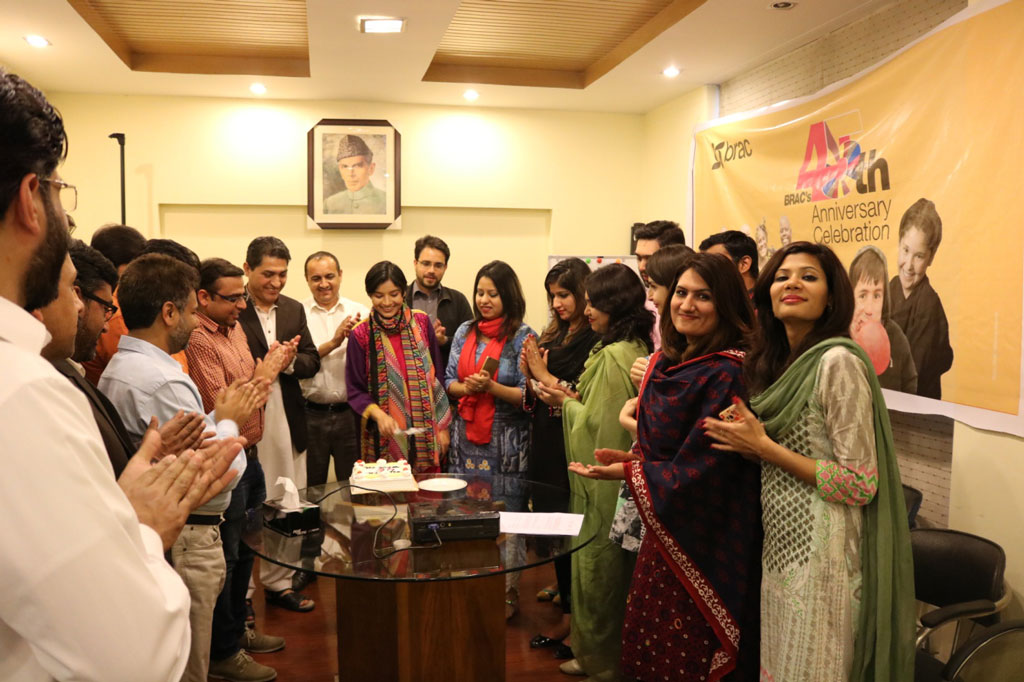 BRAC Pakistan’s newest team member cutting the 45th BRAC anniversary cake in joyful mood
BRAC Pakistan’s newest team member cutting the 45th BRAC anniversary cake in joyful mood
The 45th anniversary of BRAC was observed by all BRAC Pakistan staff to recognise BRAC’s tremendous contributions in global social development since its birth on March 21st 1972 in Bangladesh.
Celebrations were held in all main regions including at the country office in Islamabad where staff shared their stories of change and the remarkable impact BRAC has brought in their lives. Staff shared their pledges and motivation to work as BRAC’s change agents in their communities with full commitment, vigor and tenacity.
The CEO of BRAC in Pakistan Mr. Sher Zaman shared Sir Fazle Hassan Abed’s speech with the staff and stressed on laying the base of our social and development work by following in the footsteps of the great and exceptional leadership of BRAC and their community based models. While appreciating BRAC’s services for improving millions of lives living in poverty, Mr. Zaman explained BRAC's graduation model approach which helped the ultra poor climb out of poverty when its various aspects were replicated in different countries by other organisations across Asia, Africa and Latin America. A prestigious milestone indeed!
As a way forward, staff urged BRAC to bring in more innovative approaches in line with the country context to successfully translate its vision with effective and efficient solutions as there is a huge need and scope in the health and education sector in Pakistan.
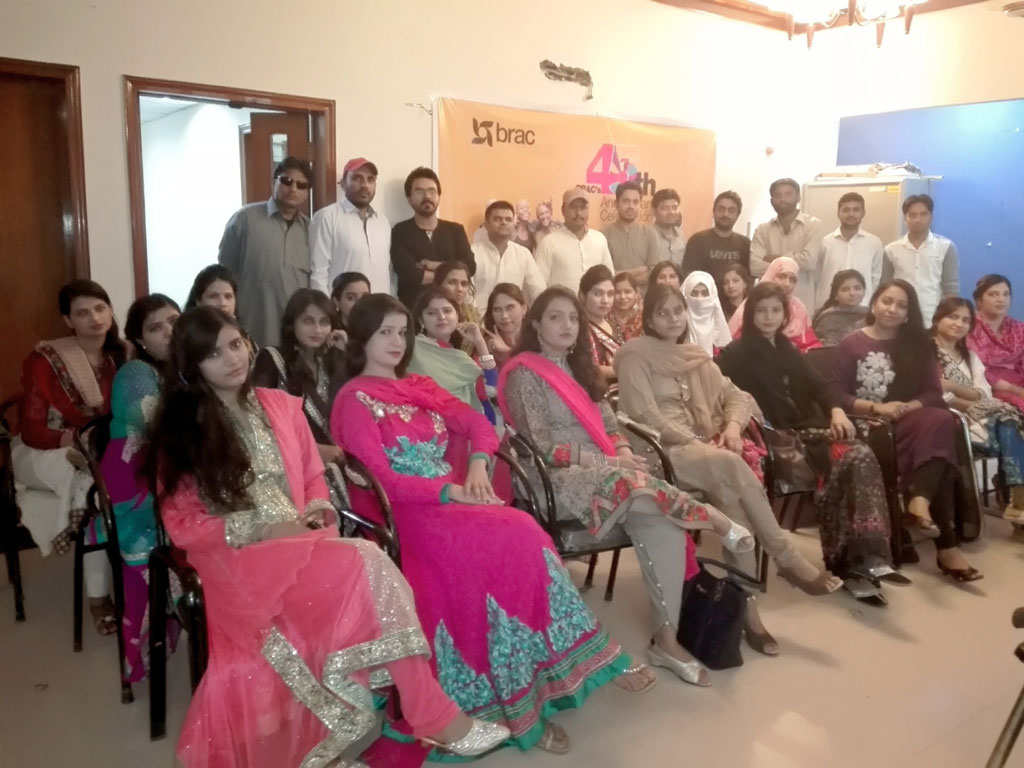 Staff of Hyderabad region in festive mood to mark 45th BRAC Day
Staff of Hyderabad region in festive mood to mark 45th BRAC Day
BRAC Day Celebration 2017
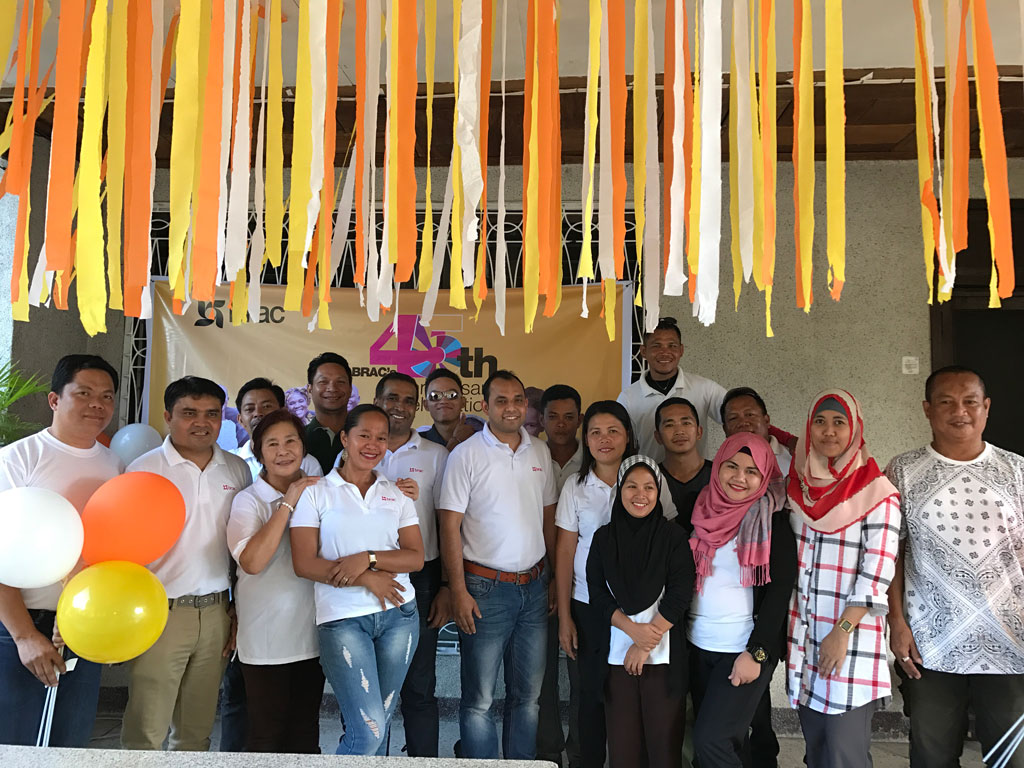
As BRAC celebrates its 45th year of supporting marginalised population around the world, BRAC Philippines remains committed to ensuring more children are brought to school, more women are employed and more communities are empowered through out interventions.
Staff of BRAC Philippines all over the Autonomous Region in Muslim Mindanao (ARMM) celebrated this joyous event to remind themselves of the goal they have worked hard to achieve through the years and the remaining work that is yet to be done for the children of ARMM.
The campaign #IamBRAC was launched on the day, encouraging staff to share their BRAC stories. One staff expressed how BRAC motivated him to work harder because of the well-established leadership structure in BRAC. Another mentioned how working at BRAC has developed her career and personality.
BRAC Philippines would like to wish the rest of BRAC a very happy BRAC Day and looking forward to another 45 years of excellent work!
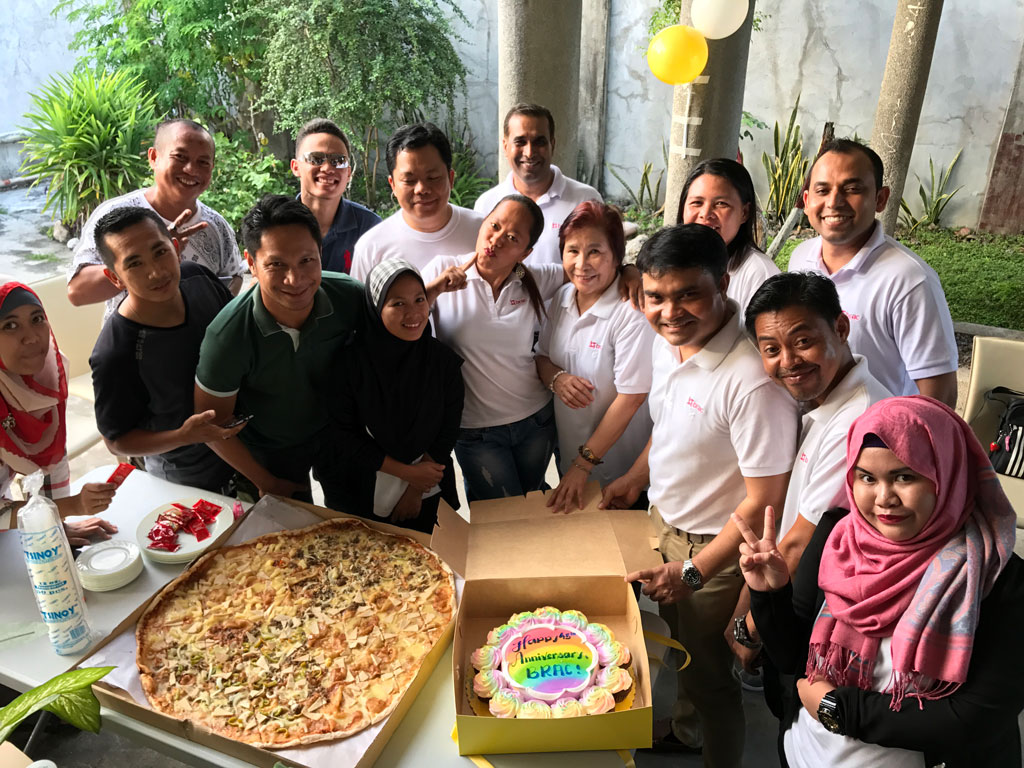
BRAC Day Celebration 2017
 BRAC in South Sudan team celebrating BRAC Day 2017
BRAC in South Sudan team celebrating BRAC Day 2017
On 21st March 2017, BRAC South Sudan joined together as one family for celebrations to mark 45 years of BRAC.
Staff discussed how BRAC not only transformed the lives of people positively, but has also inspired them to overcome challenges no matter their backgrounds. Some staffs were really excited to express their stories and motivation and use the hashtag #IamBRAC.
Country Representative Mr. Rezaul Karim expressed his honor at leading the South Sudan team and he appreciated the effort of all BRAC Staff to ensure the wellbeing of communities in South Sudan and Globally.
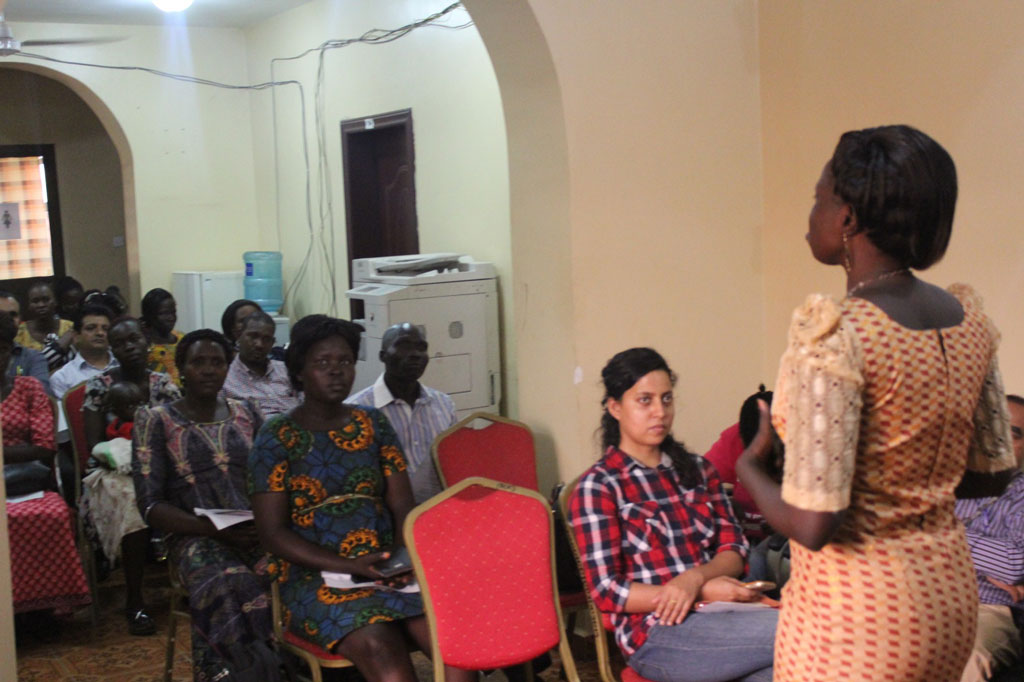 Reading out Chairperson's speech as part of BRAC Day 2017 celebrations
Reading out Chairperson's speech as part of BRAC Day 2017 celebrations
Convergences Myanmar Forum 2017
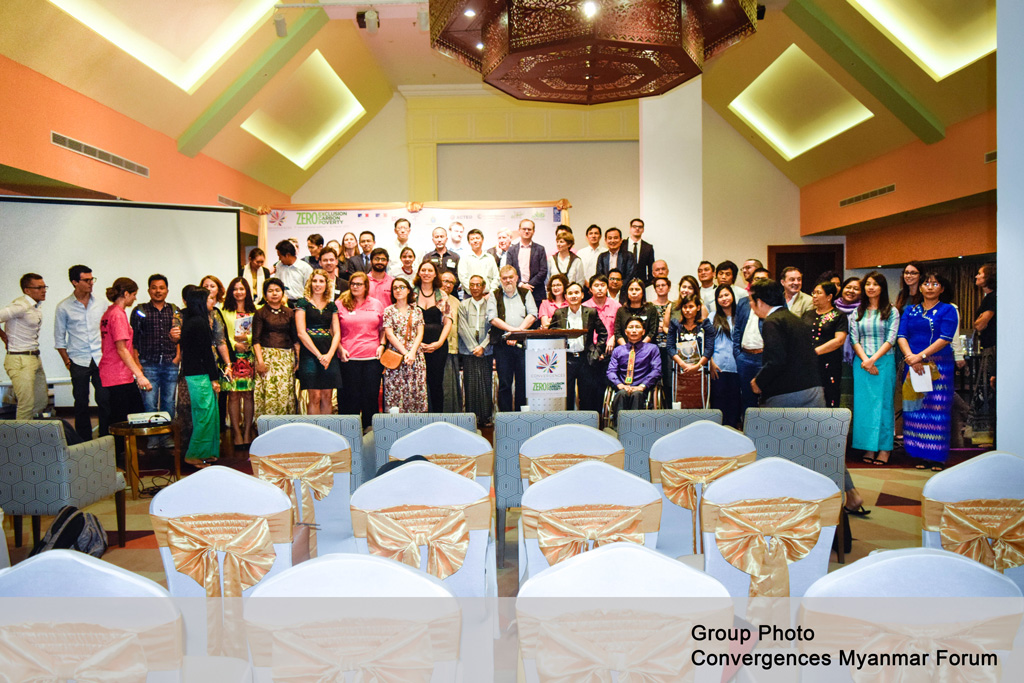
On the 10th of March BRAC Myanmar co-hosted a session on financial inclusion during the first edition of the Convergences Myanmar Forum. The theme of the session was ‘How to provide financial services for the poorest and most marginalised people?’ and the audience consisted of representatives from private organisations, NGOs and policy-makers. Lewis Temple, CEO of BRAC UK, presented BRACs ultra-poor graduation model as an illustration to the topic. Thereafter, panellists from Entrepreneurs du Monde, Dawn Myanmar, the Financial Regulatory Department, Wave Money and PGMF together with the audience discussed the challenges of reaching the poorest and how to overcome these. The speakers agreed that microcredit alone is not enough in order to reach the poorest - a more holistic approach is needed. Proposed solutions to overcome the challenges are to focus more on an integrated approach (training, support, skills development), to cooperate with and implement digital financial services and to facilitate information and knowledge sharing. All parties showed a great willingness and commitment throughout the session to cooperate toward a more financial inclusive Myanmar society.
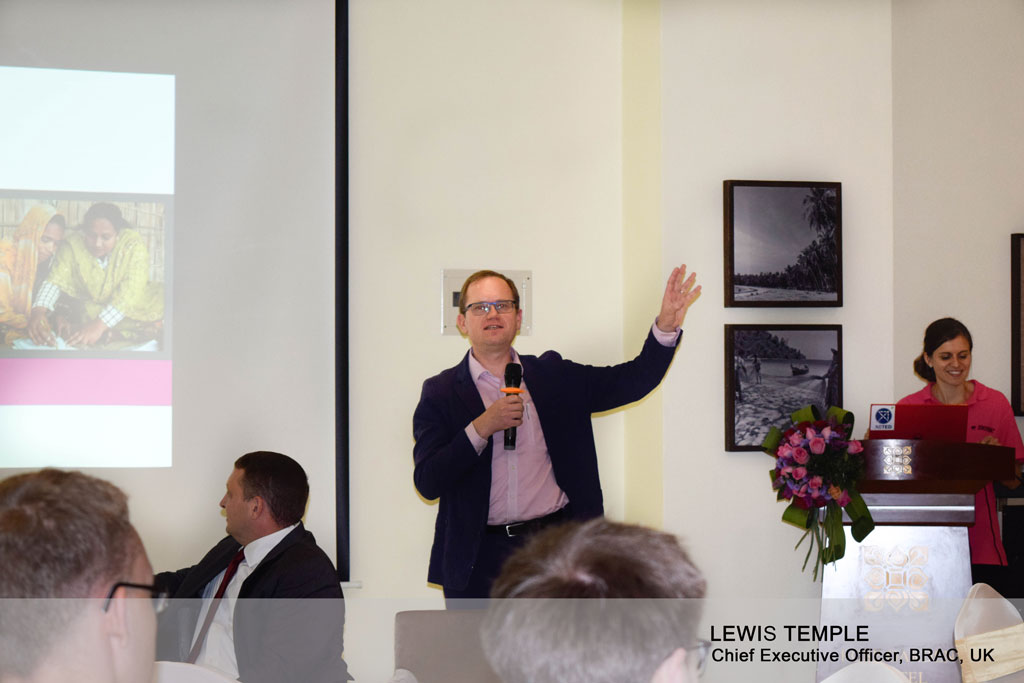
International Women's Day 2017 celebration
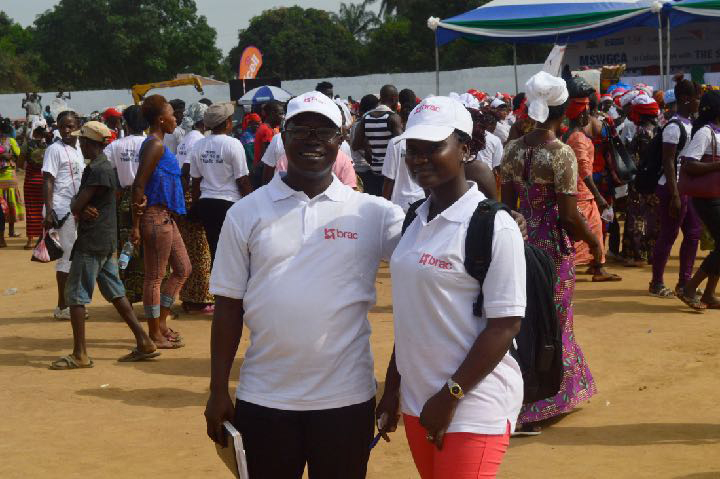 BRAC employees at the Sierra Leone national celebration of IWD 2017
BRAC employees at the Sierra Leone national celebration of IWD 2017
BRAC in Sierra Leone celebrated International Women's Day 2017 by organising an event celebrating the contributions of women at the workforce. All staff were in attendance and the there was a discussion around whether BRAC in Sierra Leone are really promoting gender mainstreaming. Going with this year's theme of "Be Bold for Change", the staff explored how BRAC is promoting women empowerment and enhancing the capacity of women and young girls for them to bring about desired change.
Members of BRAC in Sierra Leone also attended the national programme organised by the government of Sierra Leone through the ministry of Social Welfare, Gender and Children's Affairs.
7,489 incidents of violence against women in 2016
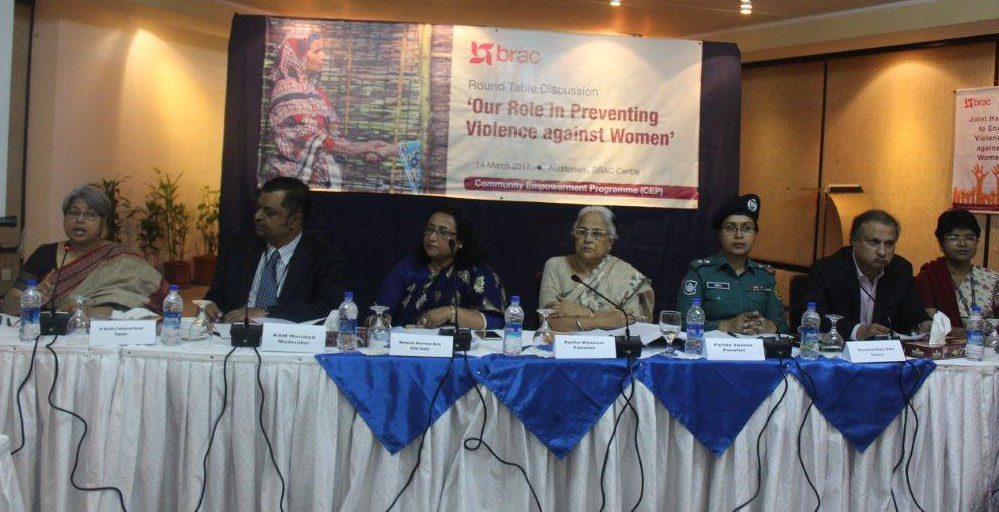
A total of 7,489 women and girls have been experienced multiple form of violence during January to December 2016. What is most alarming about the report is that the rate of child victims is 20 per cent of the total violence against women occurred during the period. Every day 1.7 child below the age of 18 have become victim of rape incidents.
BRAC community empowerment programme today organised a roundtable discussion at the BRAC Centre’s auditorium to share key findings of incidents of violence against women as documented by the programme.
Anna Minj, director of community empowerment, integrated development and gender, justice and diversity programme presided over the roundtable titled `Our Role in Preventing Violence against Women’. Mahmuda Sharmeen Benu, additional secretary of Ministry of Women and Children Affairs was the Chief Guest. Dr Ruchira Tabassum Naved, Senior Scientist of ICDDRB, Aysha Khanom, President of Bangladesh Mohila Parishad, Farida Yasmin, Deputy Commissioner, (Women Support and Investigation Unit, DMP, and Head of Victim Support Center), Mozammel Haque Babu, Chief Editor and Managing Director, 71 Television were panel discussants in the event. KAM Morshed, director, technology and partnership strengthening unit, moderated the roundtable.
Violence against women in different ways has been a common weapon to control women and this is becoming a common practice under patriarchal culture. The BRAC report shows that a total of 7,489 women and girls have been experienced violence last year. Every day on an average, 20 women and girls became victims of violence. Most frequently reported type of violence are (highest to lowest): physical violence (67 per cent), sexual (19 per cent) and mental/psychological (14 per cent). Most frequent form of violence is physical torture (4,344) of total reported incidence followed by rape and gang rape (874)), suicide (835), murder (481) and attempted rape (310). 82 per cent violence occurred in domestic sphere and 18 per cent in public sphere. Highest number of violence recorded in Jessore (351) followed by Satkhira (288), Narsingdi (280), Potuakhali (252), Mymensingh (248), Feni (220) and Rangpur (219) while the lowest was from Madaripur (34). Among all incidents, 26 per cent case filed, 7 per cent resolved in shalish and 39 per cent was under process and 28 per cent did not file any case or did not take any legal actions.
BRAC community empowerment program (CEP) identifies and reports incidents of violence against women from 55 districts of Bangladesh. This is done through its network of 12,350 ward-level and women-led institutions called Polli Shomaj. The victim or victims’ family, neighbours, and Polli Shomaj members send reports to BRAC head office, and maintain a database.
The Chief Guest, Mahmuda Sharmeen Benu said, “Violence against women is not only for the problem of women, it is also the problem of men as well. Need to work collaborately to end violence. Considering it, we have taken initiative to form `adolescent club’ in all Unions. We have also taken initiative to empower women in promoting entrepreneurship in 18 different businesses in 490 upazillas.”
Panel discussant Ayesha Khanam said, now different preventive initiative has been taking from GO and NGO but it is not sufficient considering the vulnerability. We need to work in a holistic approach to prevent violence. She also said that we have laws but most of the people, even those who are implementing, do not know about the law. She emphasised on proper implementation of the law.
Among others, government officials, representatives of law enforcing agencies, women and human rights activists, teachers, researchers, NGO activits, media representatives were present/took part in the discussion.
Convergences Myanmar Forum
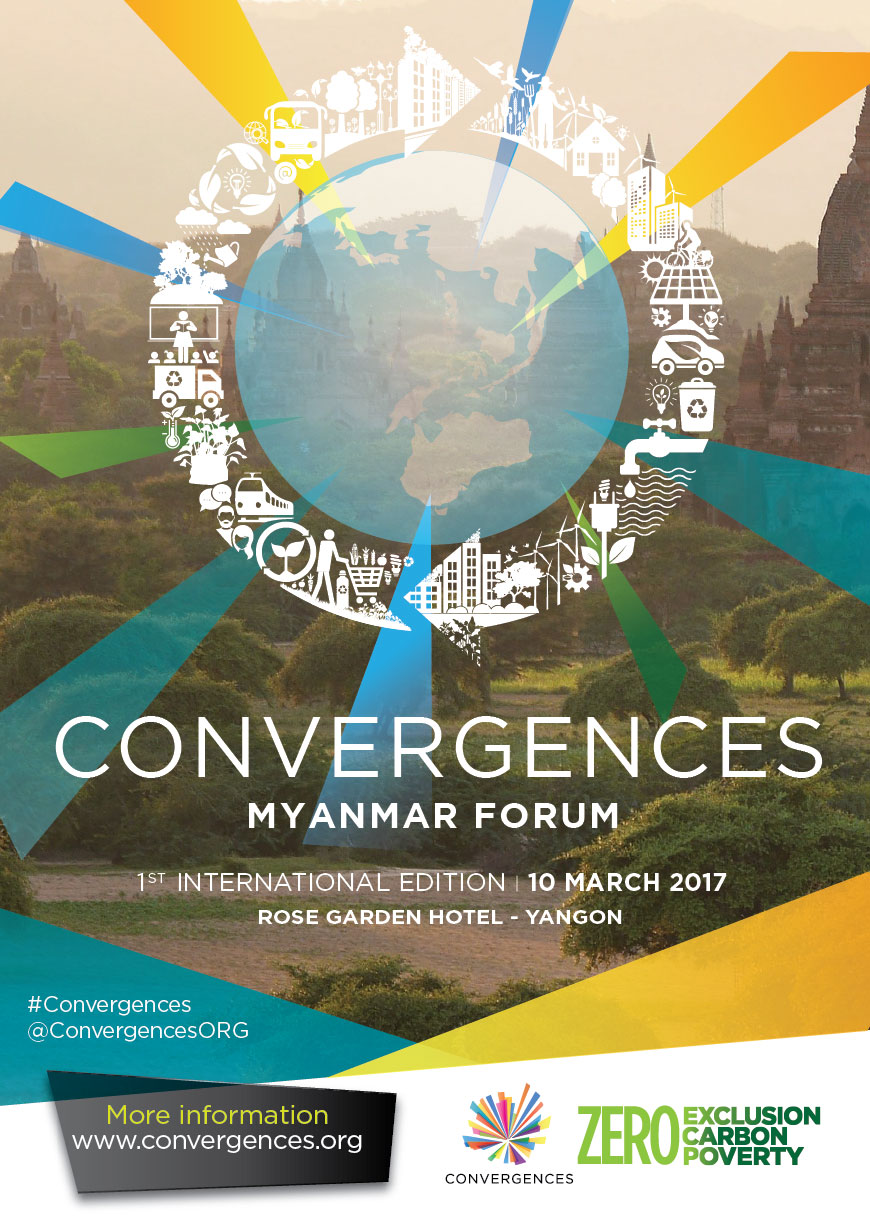
This one-day meeting will gather 200 experts and professionals, representing the public, private, academic, NGO and civil society sectors and aim at addressing four specific development challenges during solutions-oriented workshops. In each workshop, a multi-stakeholder panel will debate together and with the audience around potential solutions to achieve together a “Zero Exclusion, Zero Carbon, Zero Poverty” world, in the Myanmar context.
As a part of this day BRAC co-hosts a session about financial inclusion and poverty eradication in Myanmar. To this session we are happy to welcome Lewis Temple, CEO of BRAC UK, for a presentation on BRAC's Graduation Model as a tool for financial inclusion of the poorest. Following this presentation, a panel including regulators, Microfinance institution and a financial technology company will discuss the challenges and opportunities to down-scale financial inclusion in order to increase outreach.
For more information click here.
BRACathon: 11 groups awarded
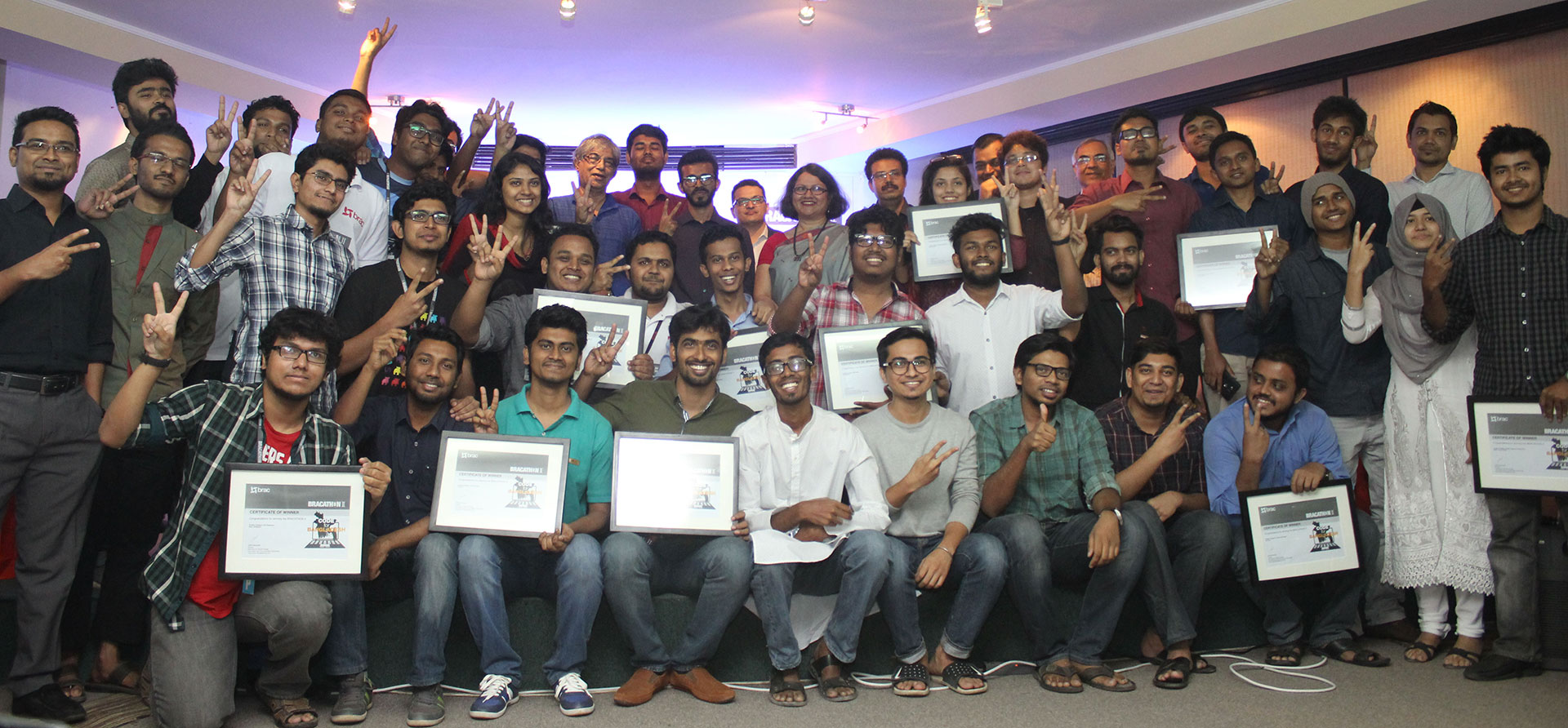 Winners of the competition
Winners of the competition
BRACathon, a competition for innovating mobile applications to solve different social and development issues concluded through an award ceremony today on Monday. Following are 11 groups that received awards in eight categories in the event:
Blue Screen of Death group in Networking in young apprentices category; Team AOS in E-commerce in enterprises category; Team Reboot in Milk Game category; Sust-Hexacore in Parental care category; Codex Unicorn in School monitoring tool category; BUET_COLD_STEEL in Water-logging in Dhaka city category; Buet_firefighters in Fire response category; and The Roar in Gender awareness category.
Distinguished guests presented the awards to the winners at a programme at BRAC Centre. Mustafa Jabbar, president, Bangladesh Association of Software and Information Services (BASIS), KAM Morshed, director, Advocacy for Social Change, ICT and Partnership Strengthening, BRAC, Debashish Saha, director, field operations, Plan International, Bangladesh, Sabina Faiz Rashid, dean and professor, James P Grant School of Public Health, BRAC University, were present, among others, at the ceremony.
Mustafa Jabbar said, ‘We have to solve our problems with our own efforts engaging the digital revolution. It’s no use depending on Canada or the US, so to speak, for the solution of our problems. There might be 160 millions of problems in our country of 160 millions. Our youths with their own innovative capacity are very much able to solve so many of our issues.’
KAM Morshed said, ‘BRAC is intent upon utilising the innovative potentials of our youths. This initiative is one of such attempts from our part. I hope that these apps can be further developed to practically solve many of our problems.’
BRAC initiated this competition on January 8 with the slogan ‘Code for Bangladesh’. A total of 40 groups were shortlisted from 200 for taking part in the event. On March 3 and 4, in the final round, 11 groups out of 16 were selected as winners. Every winner group received five thousand US dollars as grants.
The organisers said the groups were selected on the basis of the practical effectiveness of their particular apps in solving social problems. BRAC will give assistance to further develop these apps.
The BRACathon has also been supported by James P Grant School of Public Health, BRAC University, Plan International, bdnews24.com, BRAC IT Services Limited and BRACNet.
Join the world’s biggest family

